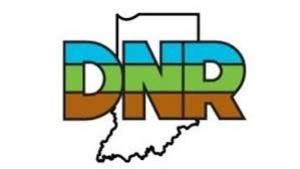
Public meetings will be held in Porter, LaPorte, Fulton, Wabash and Wayne counties. The first meeting is scheduled for Jan. 15, and the last is Jan. 29.
The presence of the invasive gypsy moth insect, problems associated with infestations, and methods for dealing with the insect will be discussed.
Meeting locations and time are:
Porter County – site name: South Haven Btk 19
Wednesday, Jan. 23 at 6 p.m. CT
South Haven Library
403 West 700 North, Valparaiso
Fulton/Marshall Counties- site names: Tiosa MD 19 and Tiosa Btk 19
Thursday, Jan. 24 at 6 p.m. ET
Meeting Room A: Fulton County Public Library/ Rochester Branch
320 West 7th Street, Rochester
Wayne County – site name: Richmond Btk 19
Tuesday, Jan. 29 at 6:30 p.m. ET
Cope Environmental Center
1730 Airport Road, Centerville
While open to anyone, the meetings will be geared toward residents of the sites listed above, which have been identified as having infestations. Maps of infested areas can be viewed at gypsymoth.IN.gov.
At the meetings, personnel from the Division of Entomology & Plant Pathology will propose options for treatment. The representatives will welcome questions and comments.
Written comments may be submitted to Department of Natural Resources, Attn: Gypsy Moth, Division of Entomology & Plant Pathology, 402 W. Washington St., Room W290, Indianapolis, IN, 46204, or emailed to: DEPP@dnr.IN.gov. Comments may be submitted until Thursday, Feb. 28, 2019, at 4:30 p.m. ET.
Options for dealing with gypsy moth that will be discussed in detail at the meetings include:
– Taking no action,
– Using mass trapping, which involves setting a large number of traps in a concentrated area to capture male gypsy moths before they have a chance to locate and mate with females, or
– Using biological control, which involves the aerial application of the naturally occurring bacteria Btk (Bacillus thuringiensis var. kurstaki), which eliminates gypsy moth larvae, or
– Using mating disruption, which involves the aerial application of the gypsy moth mating pheromone (or scent) that confuses male gypsy moths and prevents mating, or
– Using integrated pest management, which involves the combined use of the above options.
Those unable to attend one of the public meetings may view the meeting’s PowerPoint presentation, a series of question-and-answer documents, as well as maps of the exact sites of concern and further information at gypsymoth.IN.gov.
For more information, call 1-866-NO-EXOTIC (663-9684) or call the local county extension office at 1-888-EXT-INFO (1-888-398-4636).



